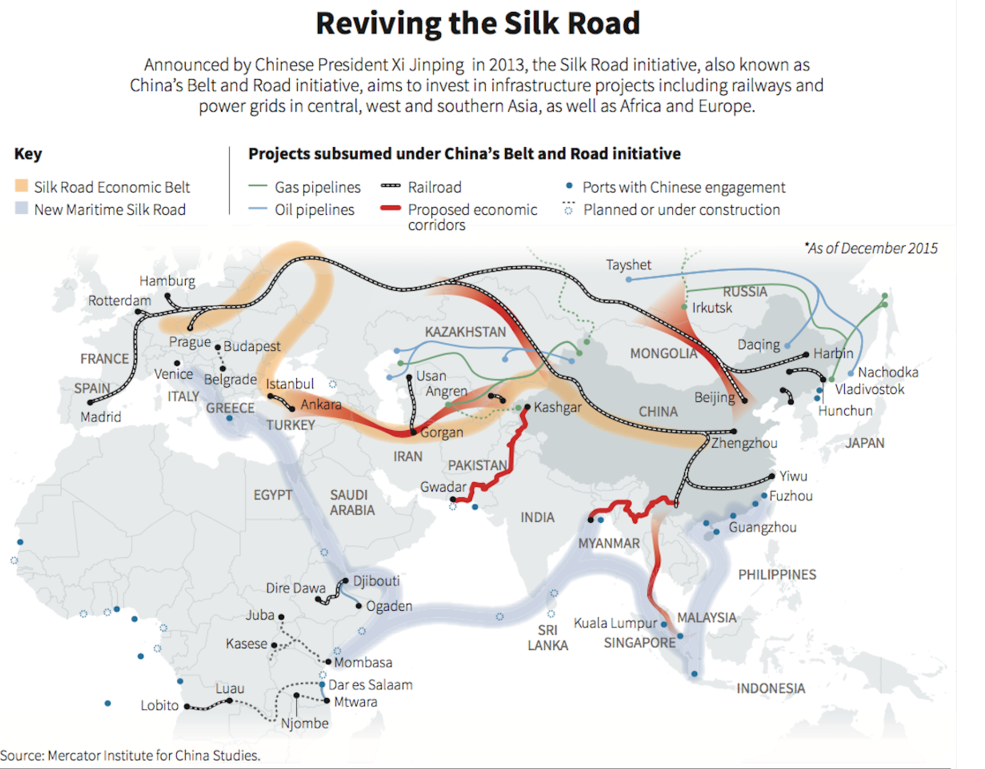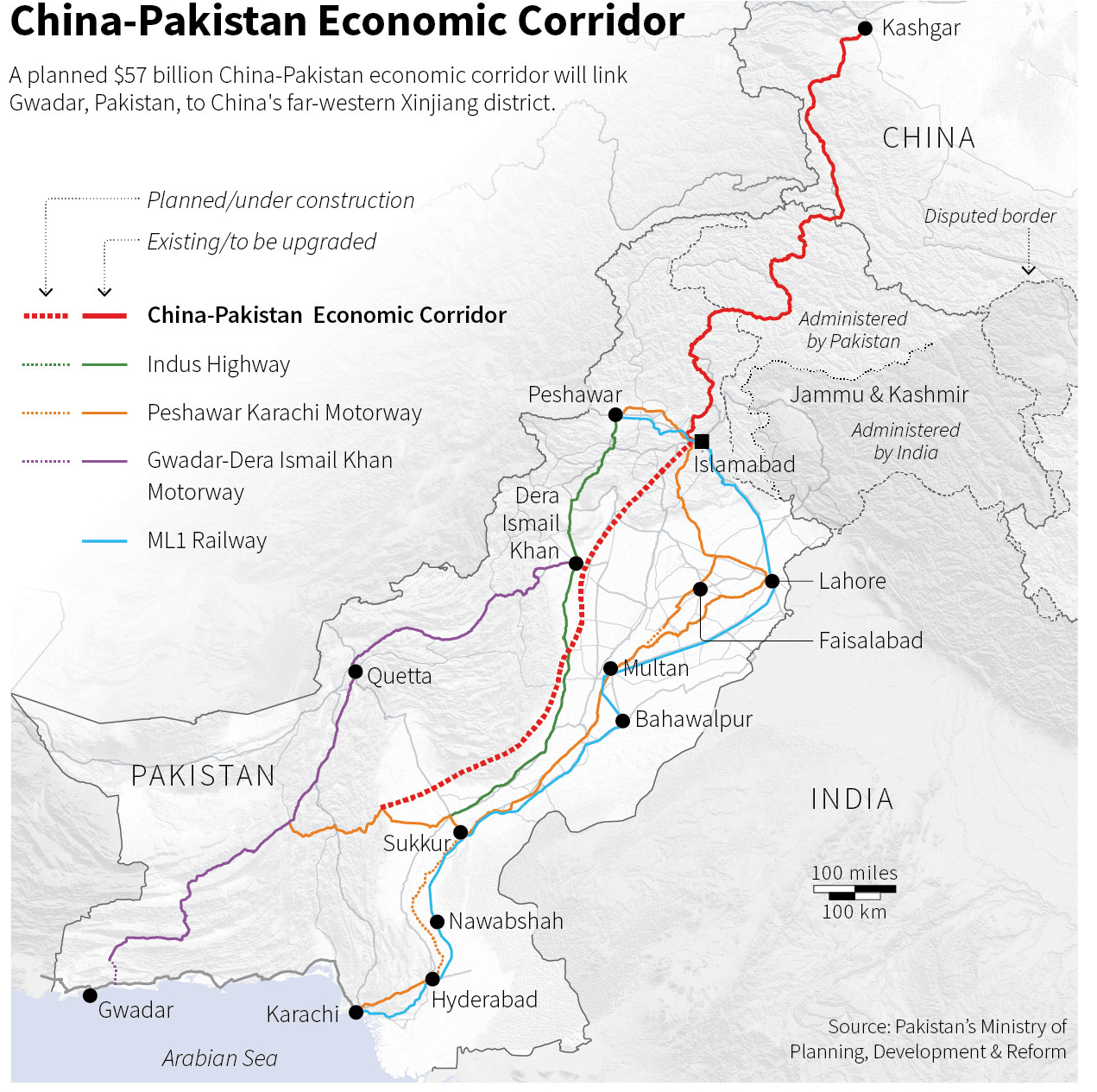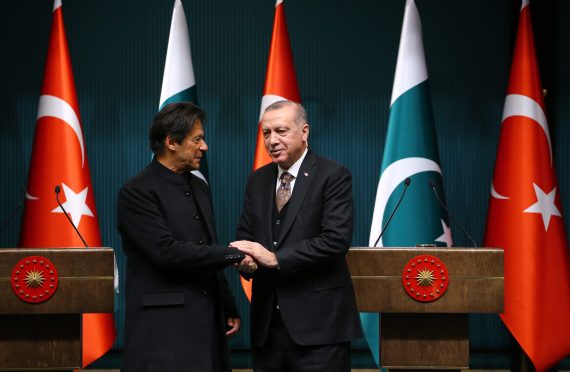The Prime Minister of the Islamic Republic of Pakistan, Imran Khan, on the invitation of the President of the Republic of Turkey, Recep Tayyip Erdogan, paid an official two day visit to Turkey on January 3-4, 2019. This was the first visit of PM Imran Khan to Turkey after he was sworn in as the 22nd Prime Minister of Pakistan in August 2018. Both the leaders had an openhearted and warm consultation which was later followed by delegation-level discussions and dialogue. During the meeting, it was mutually re-affirmed that the two countries relish and appreciate a long-lasting relationship that dates back centuries. Both the leaders specifically focused in improving defense & strategic cooperation, economic, trade and commercial ties.
What really seized attention in these discussions was the China Pakistan Economic Corridor (CPEC), a pilot project of China’s global Belt and Road Initiative (BRI). Since its announcement in 2013, CPEC, a 3,218-kilometer-long route, comprising of highways, railways and Oil & Gas pipelines has materialized as a game changer for Pakistan and the region. It’s a $60 billion project, out of which almost $45 billion will ensure that the corridor becomes active and operational by 2020. With such immense investment, the project indeed has a strong economic impact on the regional and global economy. The project is among a number of new foreign investments in Pakistan, like Saudi Arabia’s agreement to invest $15 billion in setting up an oil refinery in Gwadar (a port city of Pakistan), and interest from the UAE, which also wants to invest in Gwadar.
Likewise, the UK and some others have also showcased their interest in becoming a part of the overall arrangement.
Yet, one cannot disregard the persistent ongoing campaign by a number of countries and elements that express their resentment and hostility towards the BRI and CPEC. They claim that BRI is nothing but a debt trap for the participating countries, pointing to what happened in other countries including Sri Lanka and Malaysia. Nevertheless, the fact remains that the BRI and CPEC is a reality and that the focus is on creating jobs, improving infrastructure and connecting countries, regions and continents for improving trade and commerce.

With the BRI and CPEC aimed at enhancing economic integration and prosperity in the region, it surely provides a firm ground for Pakistan and Turkey to discuss and rethink a competitive and sustainable trade and commercial approach that can lead both Muslim nations forward. To understand the current state, it is fitting to recognize that both countries share a very strategic position in the whole BRI supply chain. As Turkey is the key node to connect China with Europe, Pakistan connects China’s western landlocked province of Xinjiang to the Middle East, Africa and beyond. Hence, strengthening the Pakistan-Turkey economic and commercial relationship is of utmost significance.
With the BRI and CPEC aimed at enhancing economic integration and prosperity in the region, it surely provides a firm ground for Pakistan and Turkey to discuss and rethink a competitive and sustainable trade and commercial approach that can lead both Muslim nations forward
Recommended
PM Imran Khan also pledged to make it easier for foreign investors to work in Pakistan, saying “I want to reassure you that the aim of my government is to make it easy for investors. So that it becomes smooth for people to make money and make profit.” In order to do this, and strengthen the relationship between Turkey and Pakistan, Pakistan needs to learn from the success stories of Turkey. It is vital to review the strategies and policies adopted by Turkey to make their agriculture, healthcare, education, cultural and tourism sectors competitive, productive and lucrative.
Notably, Pakistan does provide massive openings in the same sectors. And together both (i.e. Pakistan and Turkey) can capitalize on the opportunities of BRI and CPEC. As briefly highlighted earlier, Pakistan under the CPEC framework offers considerable opportunities like; regional connectivity, industrial cooperation, financial cooperation, agricultural cooperation, tourism, educational linkages, human resource development, health care, people to people contact, increase in livelihood opportunities and the security and stability of the region. In addition, the CPEC frame work also offers 9 Special Economic Zones (SEZ) that are attractive to foreign and local firms seeking to integrate into global value chains. These SEZs center on prompting exports, capacity building, socio-economic development, technology transfer and so forth.

In order to achieve all this, the government of Pakistan aims to focus on designing and establishing formal structures to provide transparency, a one window operation and ease of doing business for foreign and local investors. Therefore, Pakistan intends that Turkey should join hands and invest in diverse CPEC possibilities so as to improve the socioeconomic eminence of the region. Already a good number of Turkish firms are doing business in Pakistan in various sectors. As per Turkish Statistical Institute (Turk Stat) data, Turkey’s exports to Pakistan have greatly risen over the last 10 years from $155 million in 2008 to $352 million in 2017. Concurrently, Turkey’s imports from Pakistan in the same time period have dropped to $323 million from $586 million. In fact, it was only 2011 that Pakistan managed to reach $873 million worth of exports to Turkey.
As per Turkish Statistical Institute (Turk Stat) data, Turkey’s exports to Pakistan have greatly risen over the last 10 years from $155 million in 2008 to $352 million in 2017. Concurrently, Turkey’s imports from Pakistan in the same time period have dropped to $323 million from $586 million.
The current desire is to develop business-to-business relations amongst the two countries. The hope is to work together in a way that both can complement each other, rather than compete or contend for the same share. The new leadership of Pakistan is focusing on improving and reviving the industrial, agricultural, tourism, construction, education, human resource development and healthcare sectors. It is beneficial for the country to take advantage of the expertise that Turkey and Turkish companies hold in the emphasized sectors. And this can be achieved via joint ventures or partnerships as stressed by PM Khan while addressing the Business Community at Türkiye Odalar ve Borsalar Birliği (TOBB). Likewise, to achieve economies of scale and competitiveness nothing could be better than using the rich and young human capital that Pakistan can offer to Turkish companies/investors. Once trained properly, they can provide added value and advantage for goods and services that can be further exported to different regions, countries or continents.





